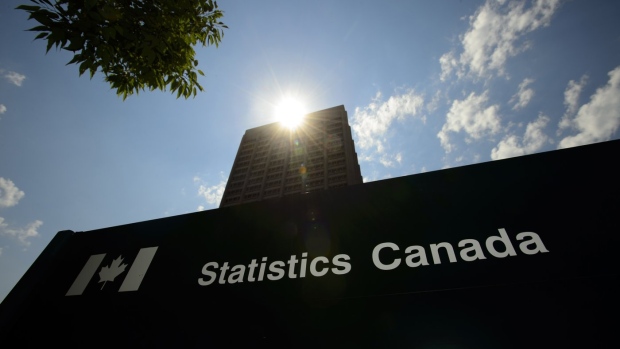Mar 8, 2024
The Daily Chase: Canada adds 40K jobs, but jobless rate ticks up
, BNN Bloomberg

Here are five things you need to know this morning:
Canada adds more jobs than expected: Canada’s labour market more than doubled expectations for job growth last month, adding 41,000 new positions. Statistics Canada published its Labour Force Survey for February this morning, which showed the biggest employment surge since September. Despite the jobs gain, the jobless rate ticked up to 5.8 per cent as more people were looking for work, too. The population grew by 0.3 per cent during the month, while employment grew by 0.2 per cent, StatCan noted. There was weakness below the headline, too, as a big part of the job gains were self-employment positions, at 38,300. The public sector grew by 18,800, while private sector jobs — the type economists like to see go up as a sign of a robust, dynamic economy — shrank by 16,400.
CEO pay at big banks: Canada’s biggest lenders posted their quarterly and annual earnings at the end of February, and now that the performances of the banks themselves are public, some attention is turning to how the men leading them have done. At least three of the CEOs at Canada’s five biggest banks saw their total compensation packages come in below target for 2023, a sign of just how rocky the year was for the Bay Street icons. BMO CEO Daryl White was paid $11.2 million in total compensation last year, just shy of the bank’s $11.8 million target. Over at Scotiabank, Scott Thomson was paid $7.7 million in direct pay, $1 million less than his target, but his total compensation including pension and other benefits was $9.4 million. At CIBC, Victor Dodig’s target for direct compensation was set at $11 million and he was awarded just shy of that at $10.7 million. At RBC, Dave McKay got $16.1 million in total compensation, down slightly from a year earlier. But his direct compensation target was $14 million and the board awarded him $15.2 million — making him the only one to exceed his target so far. The other big bank, TD, has yet to file its management proxy circular for the year so we don’t know how CEO Bharat Masrani did just yet.
Costco earnings underwhelm: Bank pay packages aren’t the only sign of austerity out there. Earnings at big box retailer Costco were mixed even as topline sales and lucrative membership revenue continued to grow. Same store sales in Canada rose by nine per cent, almost twice as much as the growth clocked in the U.S. at 4.8 per cent. Shares in Costco have gained roughly 60 per cent in the past year, and analysts say that while the numbers were mostly positive, it’s hard to see positive catalysts that might move the stock even higher. The market seems to be picking up on that sentiment, sending the shares lower in premarket trading. It’s ironic that an era of belt-tightening could be upon us, even as consumers maintain their appetite for three-packs of two-kilo’s worth of peanut butter, and those famous hotdog and a drink combos for $1.50.
Keystone pipeline briefly stops: The Keystone oil pipeline was briefly shut down on Thursday after the pressure dropped on a segment of the pipeline that transports more than 600,000 barrels of heavy crude oil every day over more than 4,000 kilometres from Northern Alberta to refineries on the U.S. Gulf Coast. Pressure dropped on a segment of the line that runs between near its start in Hardisty, Alberta and Steele City, Nebraska, Bloomberg reports. A pressure drop indicates that the line stopped moving oil. The Calgary-based company said in a statement that it had confirmed the pipeline’s integrity and no oil was released. It’s not exactly clear what happened but as of Friday morning, normal flow had resumed.
CPP buys stake in Italian telco: The Canada Pension Plan Investment Board is buying a 17.5 per cent stake in a unit of Telecom Italia called Netco for 2 billion euros. The pension plan is teaming up in a consortium that includes the Abu Dhabi Investment Authority and U.S. private equity group KKR in a deal that is slated to be completed some time later this year. Buying infrastructure assets makes perfect sense for pension plans like CPP, but the move it especially interesting right now given the growing push for Canadian pension plans like CPP to start putting their capital to work more domestically than they do overseas.